新标准高职公共英语实用综合教程(第二版)unit2课件
- 格式:ppt
- 大小:4.18 MB
- 文档页数:221
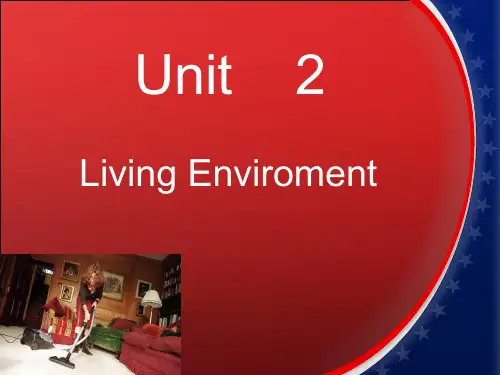

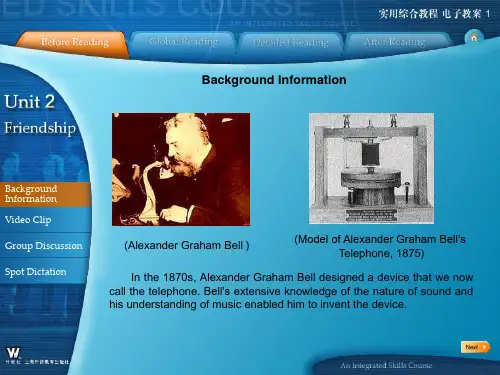

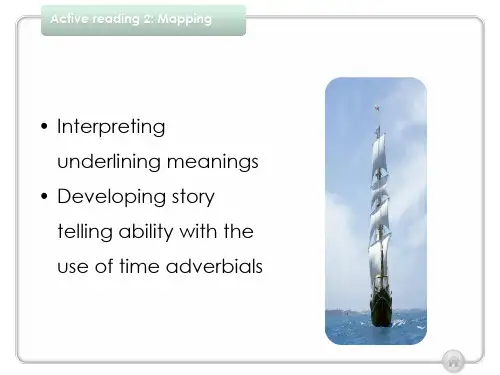
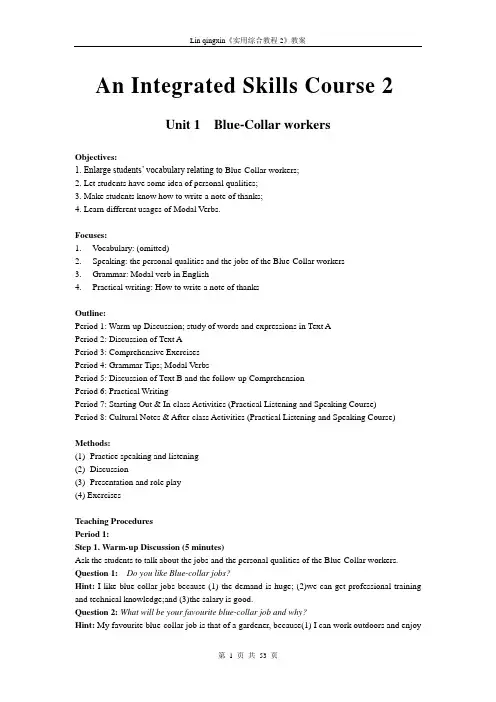
An Integrated Skills Course 2Unit 1 Blue-Collar workersObjectives:1. Enlarge students’ vocabulary relating to Blue-Collar workers;2. Let students have some idea of personal qualities;3. Make students know how to write a note of thanks;4. Learn different usages of Modal Verbs.Focuses:1.V ocabulary: (omitted)2.Speaking: the personal qualities and the jobs of the Blue-Collar workers3.Grammar: Modal verb in English4.Practical writing: How to write a note of thanksOutline:Period 1: Warm-up Discussion; study of words and expressions in Text APeriod 2: Discussion of Text APeriod 3: Comprehensive ExercisesPeriod 4: Grammar Tips; Modal VerbsPeriod 5: Discussion of Text B and the follow-up ComprehensionPeriod 6: Practical WritingPeriod 7: Starting Out & In-class Activities (Practical Listening and Speaking Course)Period 8: Cultural Notes & After-class Activities (Practical Listening and Speaking Course)Methods:(1)Practice speaking and listening(2)Discussion(3)Presentation and role play(4) ExercisesTeaching ProceduresPeriod 1:Step 1. Warm-up Discussion (5 minutes)Ask the students to talk about the jobs and the personal qualities of the Blue-Collar workers. Question 1:Do you like Blue-collar jobs?Hint: I like blue-collar jobs because (1) the demand is huge; (2)we can get professional training and technical knowledge;and (3)the salary is good.Question 2: What will be your favourite blue-collar job and why?Hint: My favourite blue-collar job is that of a gardener, because(1) I can work outdoors and enjoythe fresh air;and(2) I can keep fit and get good pay.Step 2. Background Information (10 minutes)A blue-collar worker is a member of the working class who performs manual labor. Blue-collar work may involve skilled or unskilled, manufacturing, mining, construction, mechanical, maintenance, technical installation and many other types of physical work. Blue-collar work is often paid hourly wage-labor, although some professionals may be paid by the project or salaried. There is a wide range of payscales for such work depending upon field of specialty and experience.White-collar workers typically perform work in an office environment and may involve sitting at a computer or desk. Service workers, or pink-collar workers, make up a third type of worker. Their labor is related to customer interaction, entertainment sales or other service-oriented work.Step 3. Vocabulary in Text A (20 minutes)Ask Ss to read new words and expressions by themselves and then read the new words together. Explain the important points.1. Heartland n.the area or region where a particular set of activities or beliefs is most significant 中心地区,心脏地带Jack had a six-day bus tour around the industrial heartland of America.杰克在美国工业中心区域乘大巴旅游了六天。

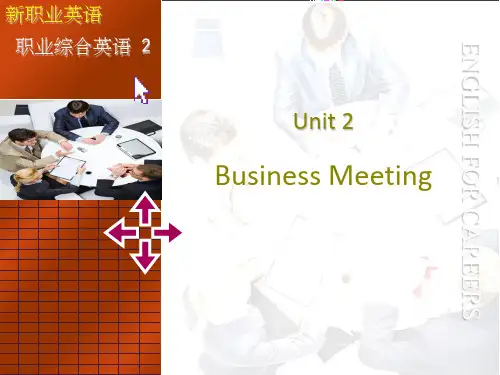

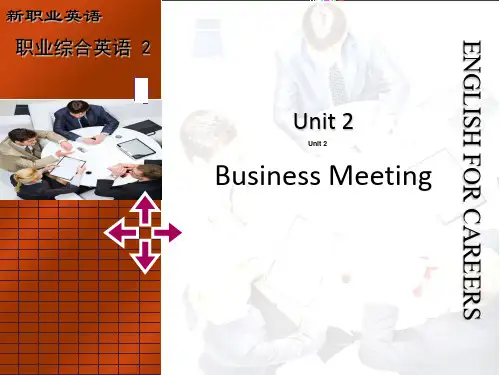
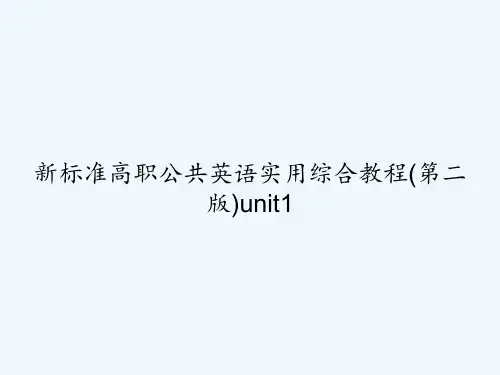
An Integrated Skills Course 2Unit 1 Blue-Collar workersObjectives:1. Enlarge students’ vocabulary relating to Blue-Collar workers;2. Let students have some idea of personal qualities;3. Make students know how to write a note of thanks;4. Learn different usages of Modal Verbs.Focuses:1.V ocabulary: (omitted)2.Speaking: the personal qualities and the jobs of the Blue-Collar workers3.Grammar: Modal verb in English4.Practical writing: How to write a note of thanksOutline:Period 1: Warm-up Discussion; study of words and expressions in Text APeriod 2: Discussion of Text APeriod 3: Comprehensive ExercisesPeriod 4: Grammar Tips; Modal VerbsPeriod 5: Discussion of Text B and the follow-up ComprehensionPeriod 6: Practical WritingPeriod 7: Starting Out & In-class Activities (Practical Listening and Speaking Course)Period 8: Cultural Notes & After-class Activities (Practical Listening and Speaking Course)Methods:(1)Practice speaking and listening(2)Discussion(3)Presentation and role play(4) ExercisesTeaching ProceduresPeriod 1:Step 1. Warm-up Discussion (5 minutes)Ask the students to talk about the jobs and the personal qualities of the Blue-Collar workers. Question 1:Do you like Blue-collar jobs?Hint: I like blue-collar jobs because (1) the demand is huge; (2)we can get professional training and technical knowledge;and (3)the salary is good.Question 2: What will be your favourite blue-collar job and why?Hint: My favourite blue-collar job is that of a gardener, because(1) I can work outdoors and enjoythe fresh air;and(2) I can keep fit and get good pay.Step 2. Background Information (10 minutes)A blue-collar worker is a member of the working class who performs manual labor. Blue-collar work may involve skilled or unskilled, manufacturing, mining, construction, mechanical, maintenance, technical installation and many other types of physical work. Blue-collar work is often paid hourly wage-labor, although some professionals may be paid by the project or salaried. There is a wide range of payscales for such work depending upon field of specialty and experience.White-collar workers typically perform work in an office environment and may involve sitting at a computer or desk. Service workers, or pink-collar workers, make up a third type of worker. Their labor is related to customer interaction, entertainment sales or other service-oriented work.Step 3. Vocabulary in Text A (20 minutes)Ask Ss to read new words and expressions by themselves and then read the new words together. Explain the important points.1. Heartland n.the area or region where a particular set of activities or beliefs is most significant 中心地区,心脏地带Jack had a six-day bus tour around the industrial heartland of America.杰克在美国工业中心区域乘大巴旅游了六天。